Nearly ten percent of Americans don't get enough potassium, putting themselves at risk of potassium deficiency, symptoms of which include irregular heartbeat, muscle cramps, and tiredness.
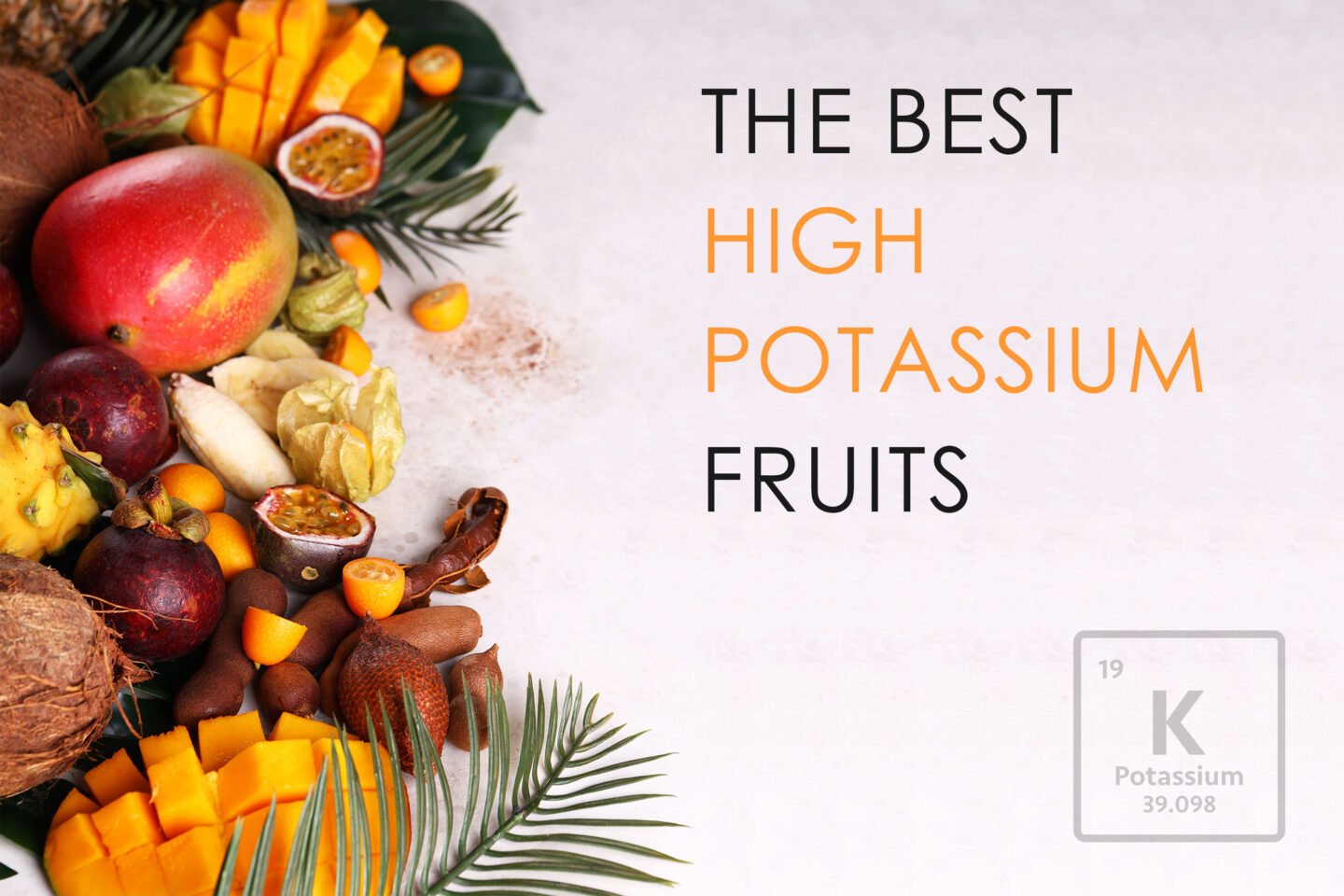
Fruit is delicious, highly nutritious, and an excellent addition to any healthy, balanced diet. Many fruits contain potassium, but which are the best if you want to significantly increase your intake?
Avocados, pomegranates, dates, bananas, honeydew melon, prunes, papaya, grapefruit, sweet cherries, kiwi, apricots, mangoes, oranges, guava, and raisins are some of the fruits with high potassium levels. Read on to learn more.
Which Fruits Are High in Potassium?
To be considered high-potassium, fruits must contain over 200 mg per serving.
Below, I've listed 15 of the best fruits for increasing your potassium intake.
1. Avocados
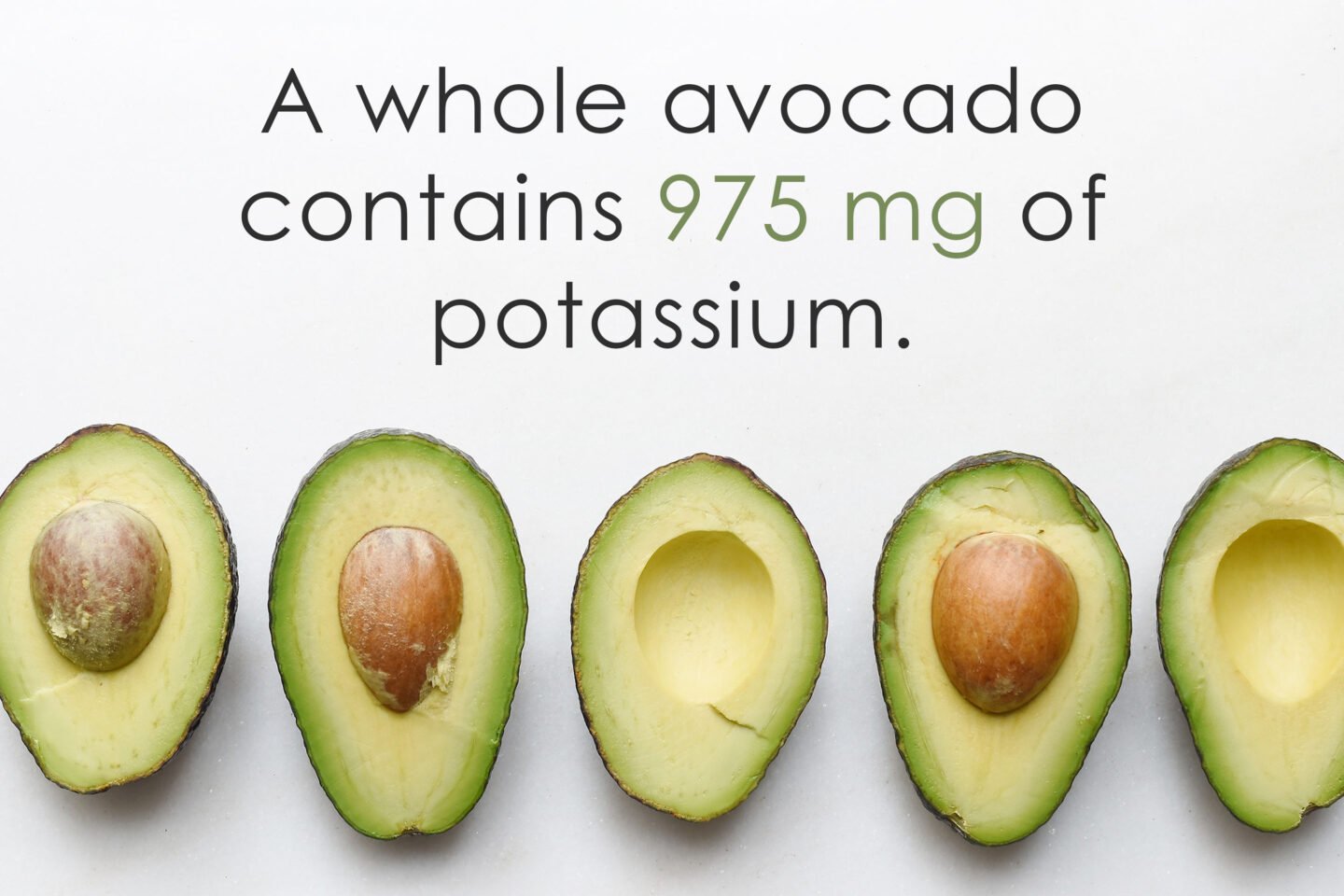
A whole avocado contains 975 mg of potassium. It's also high in calories, but mostly from healthy fats.
It’s rich in omega-3 fatty acids, which lower blood pressure and slow arterial plaque build-up, reducing your risk of heart disease.
2. Pomegranate
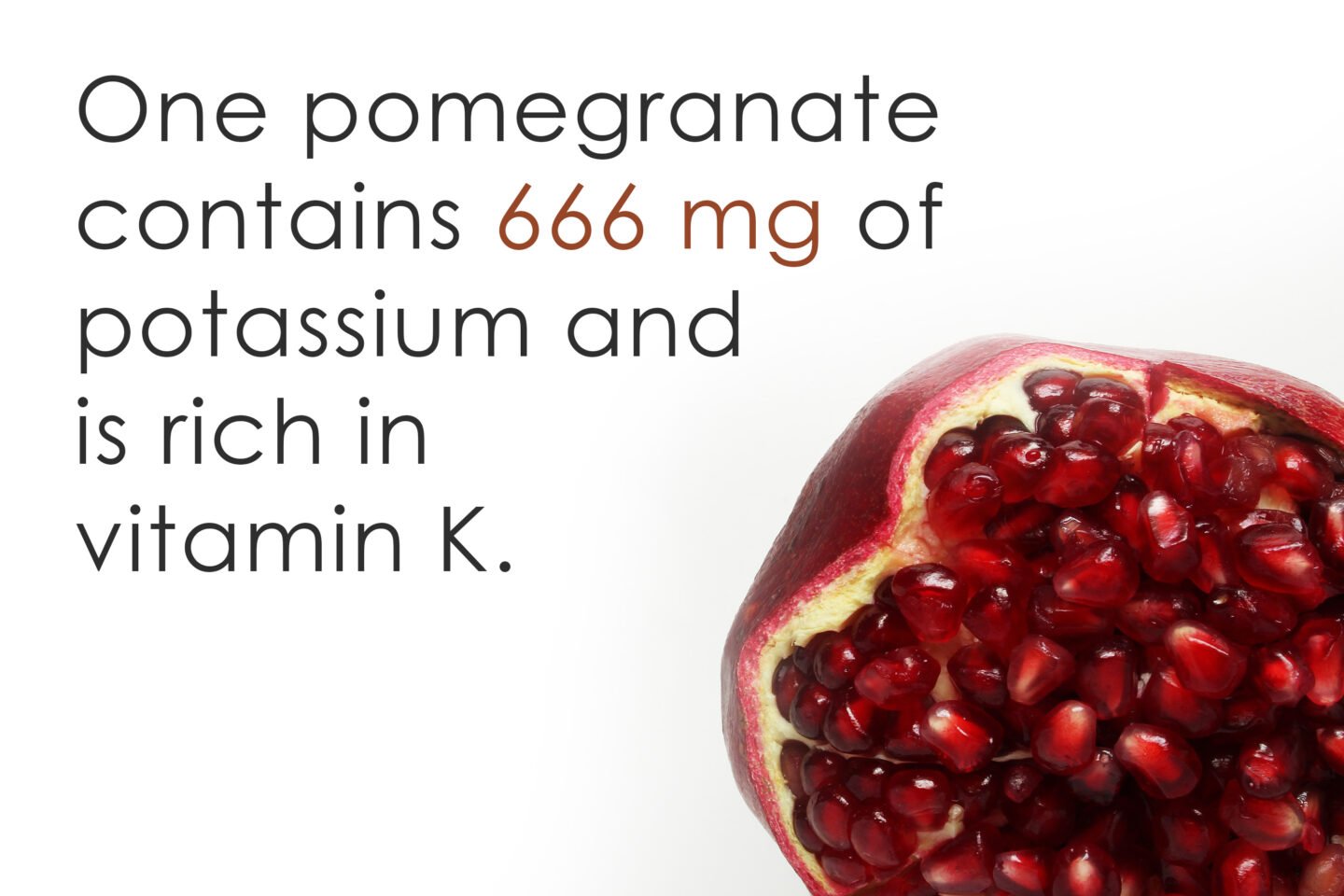
One pomegranate contains 666 mg of potassium and is rich in vitamin K, essential for blood clotting and bone strength.
Eating pomegranates may also reduce inflammation, lessening your risk of disease.
3. Dates
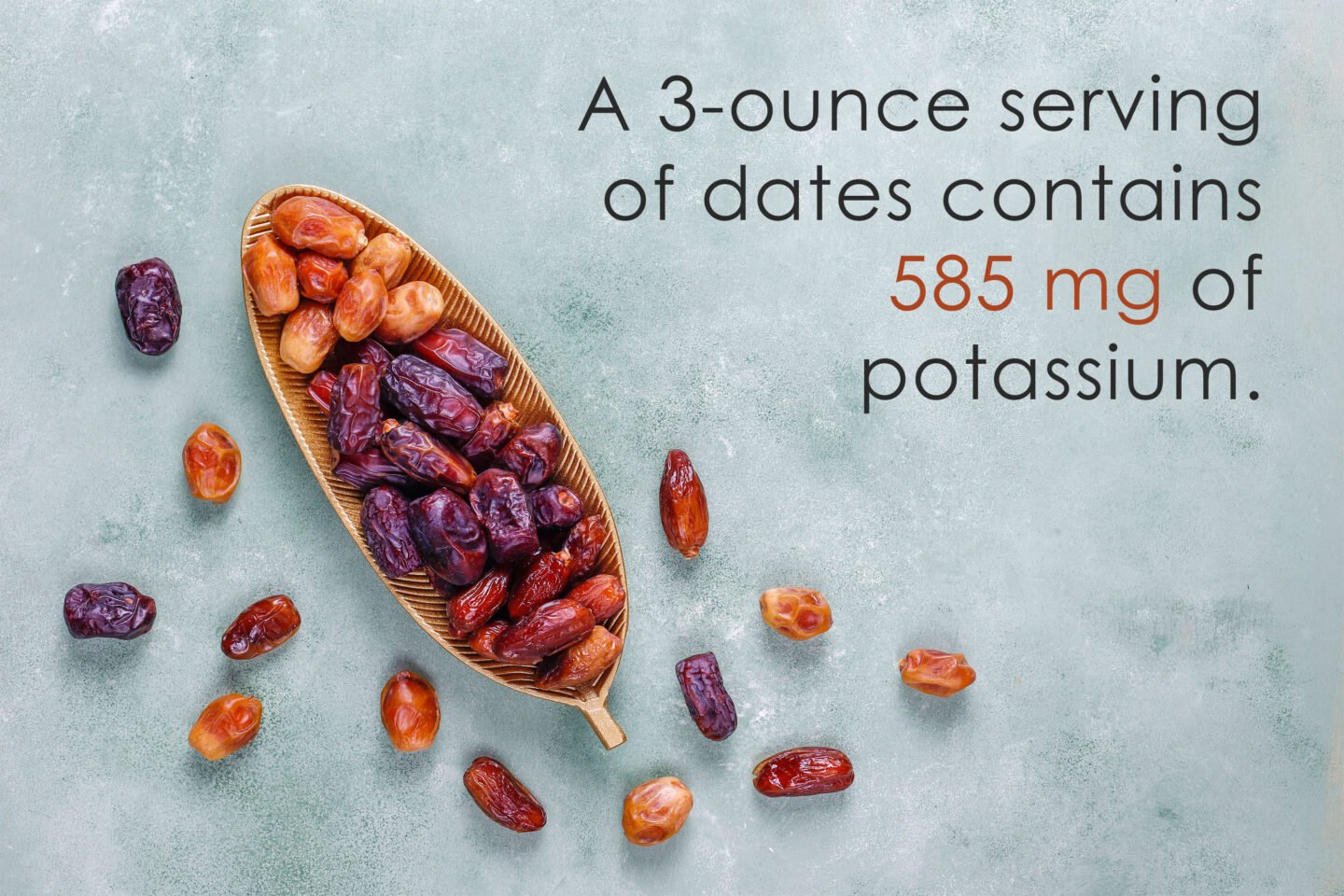
A 3-ounce serving of dates contains 585 mg of potassium. They're incredibly nutritious and contain compounds that fight disease, including antioxidants.
Adding dates to your diet during the last few weeks of pregnancy could reduce labor time.
4. Bananas
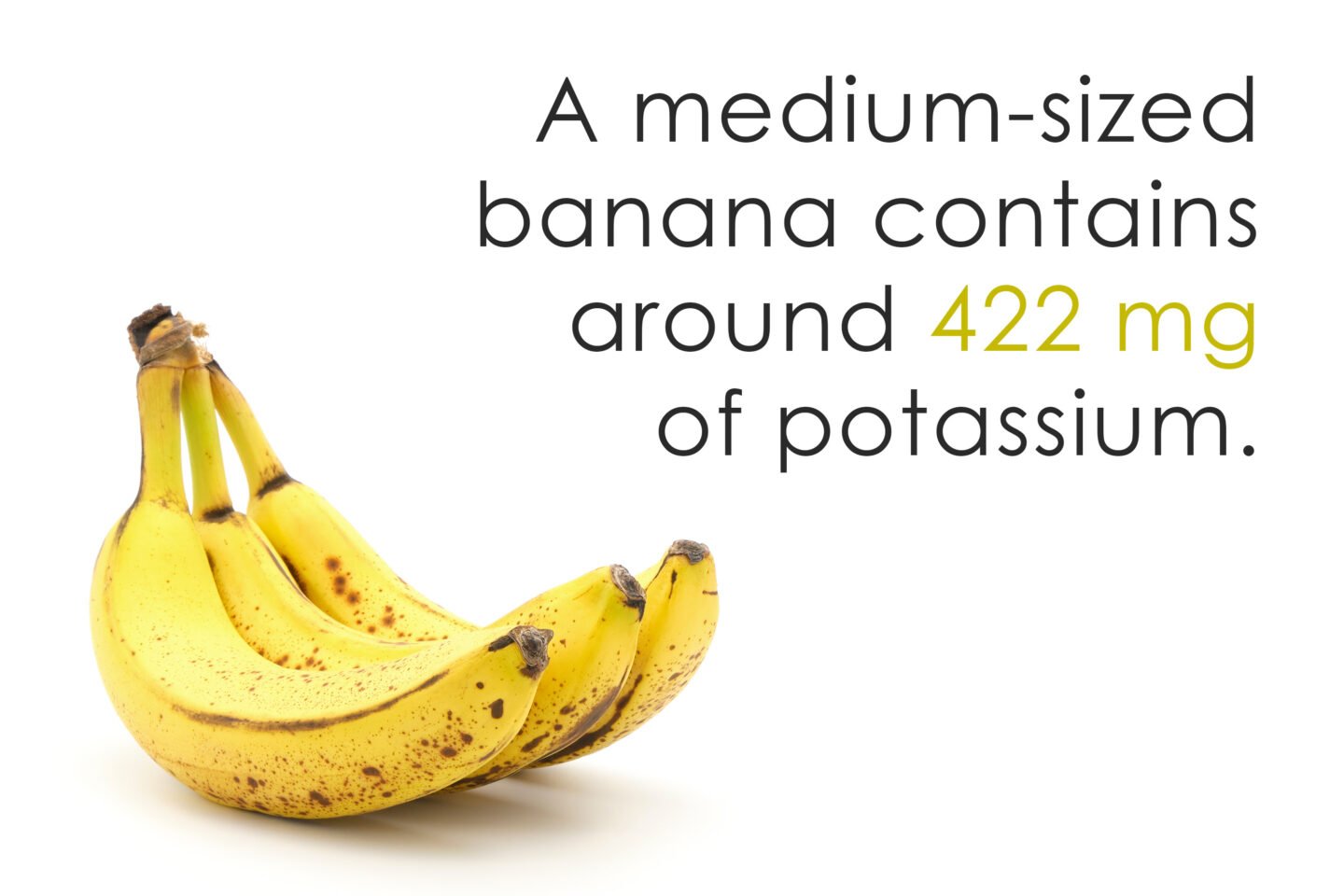
A medium-sized banana contains around 422 mg of potassium and a good amount of manganese and vitamins C and B6. These contribute to skin health, support the immune system, and strengthen bones.
5. Honeydew melon
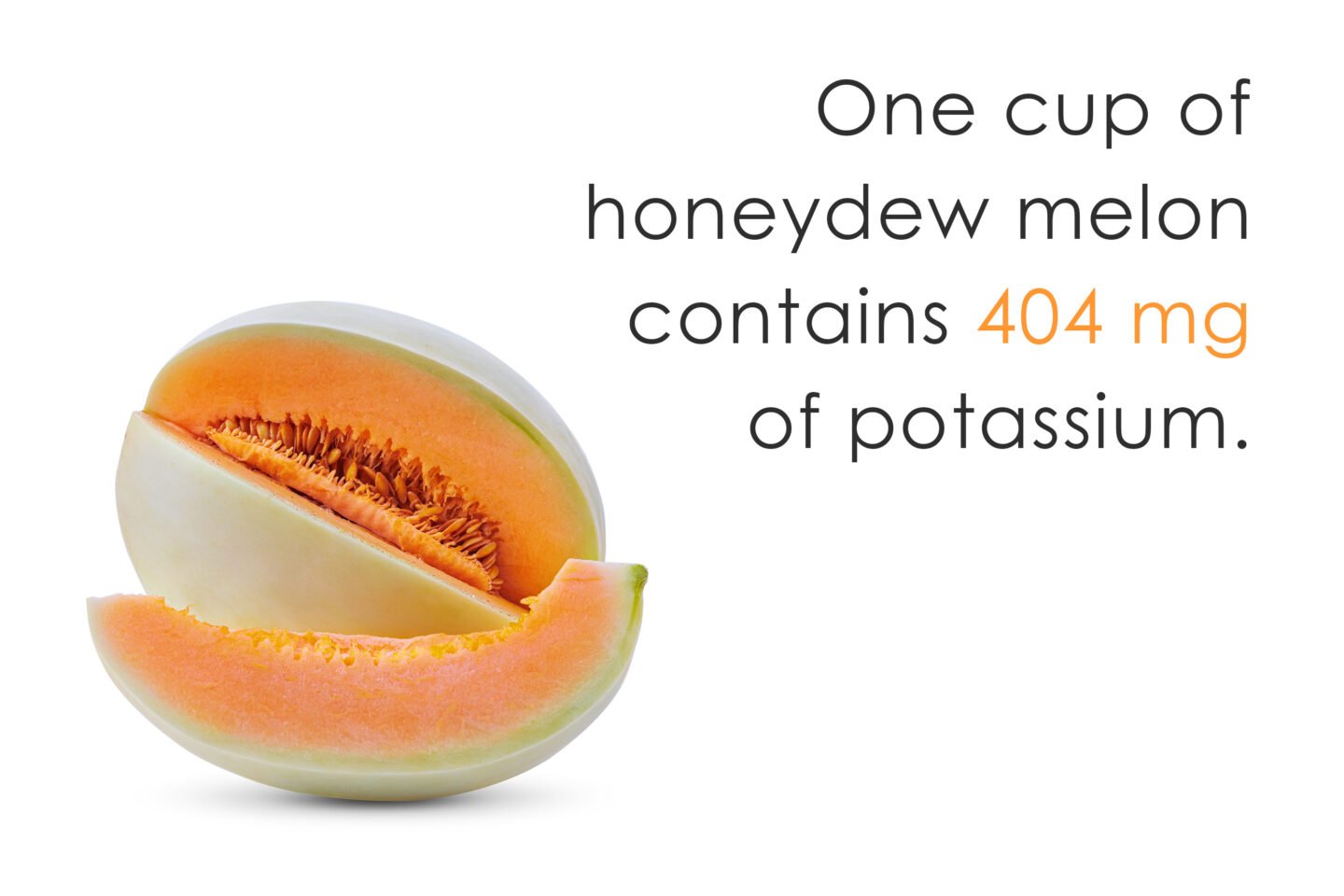
One cup of honeydew melon contains 404 mg of potassium and a good amount of vitamin B6 and folate. These help your body form hemoglobin, which is vital to red blood cell formation.
Folate also contributes to white blood cell production.
6. Prunes
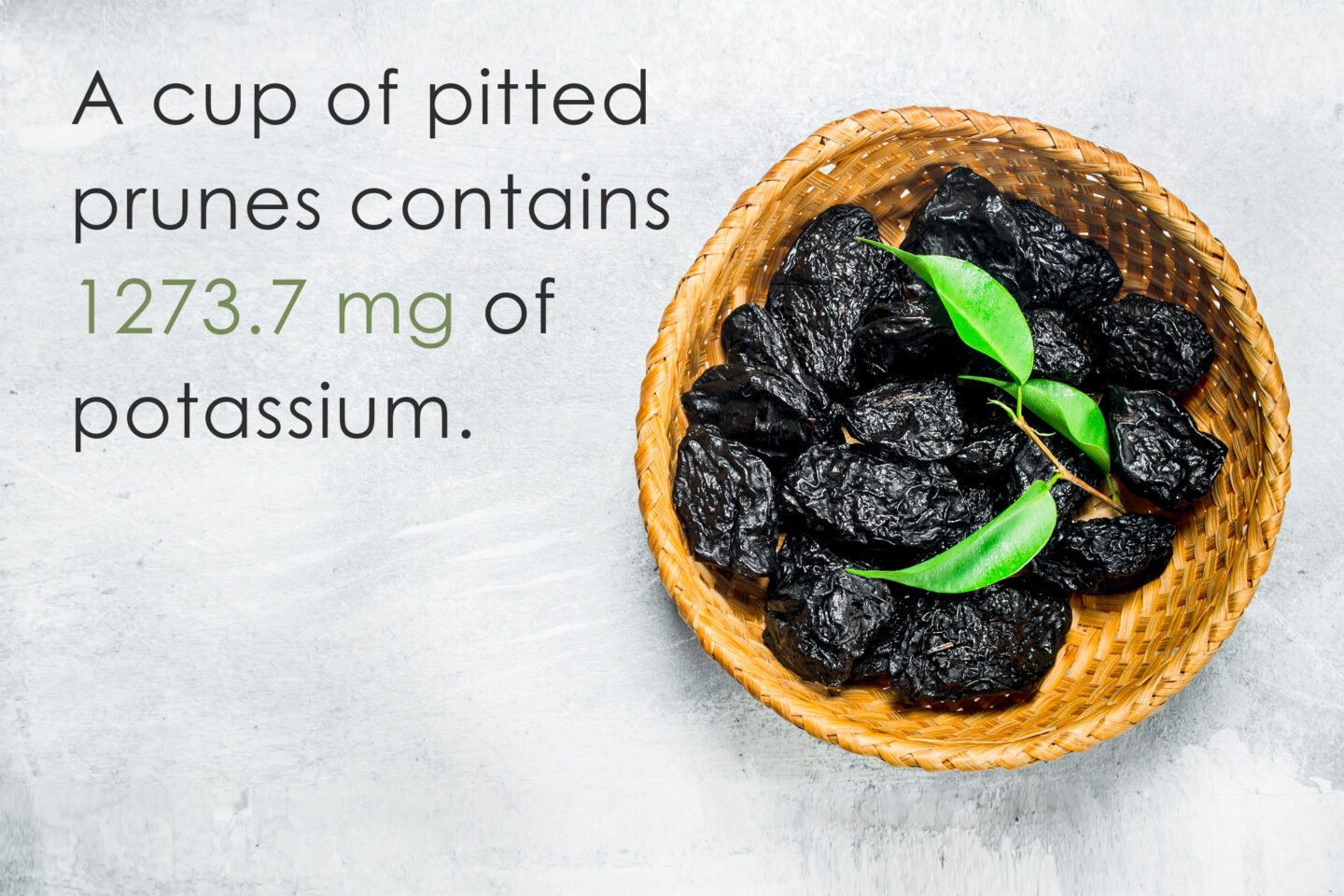
A cup of pitted prunes contains 1273.7 mg of potassium and is an excellent source of iron, copper, and vitamins A and B6.
Prunes are high in antioxidants, which flush harmful free radicals out of your body, lowering your risk of oxidative stress and cellular damage.
7. Papaya
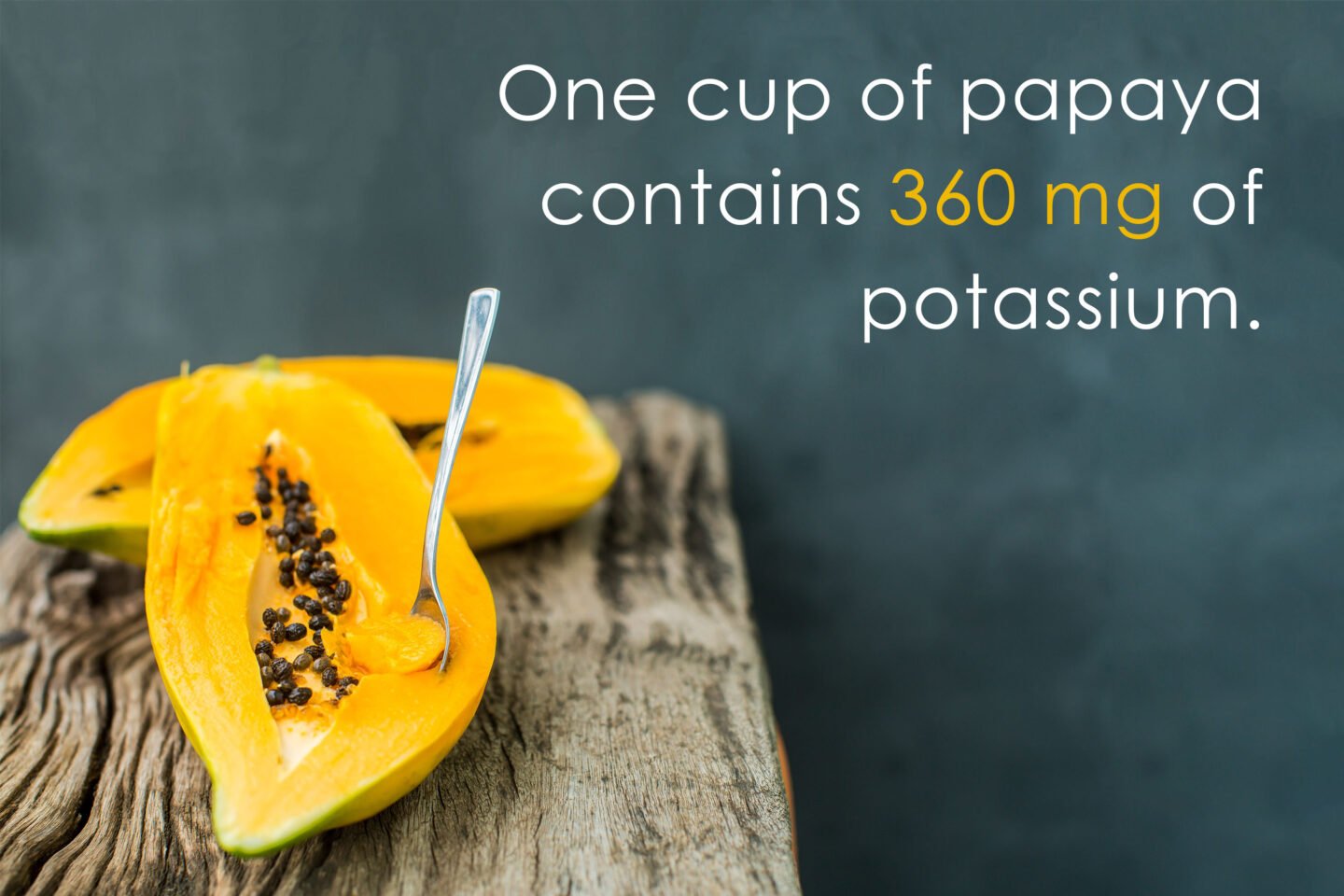
One cup of papaya contains 360 mg of potassium and is especially rich in vitamins C and A, contributing to eye and skin health and boosting your immune system.
Papaya also contains compounds that reduce your risk of heart disease, diabetes, and some cancers.
Don't know which foods are high in potassium? Read our article, 15 Best Food Sources of Potassium. We also have a guide to this important mineral: Potassium 101: All You Need To Know About Potassium.
8. Grapefruit
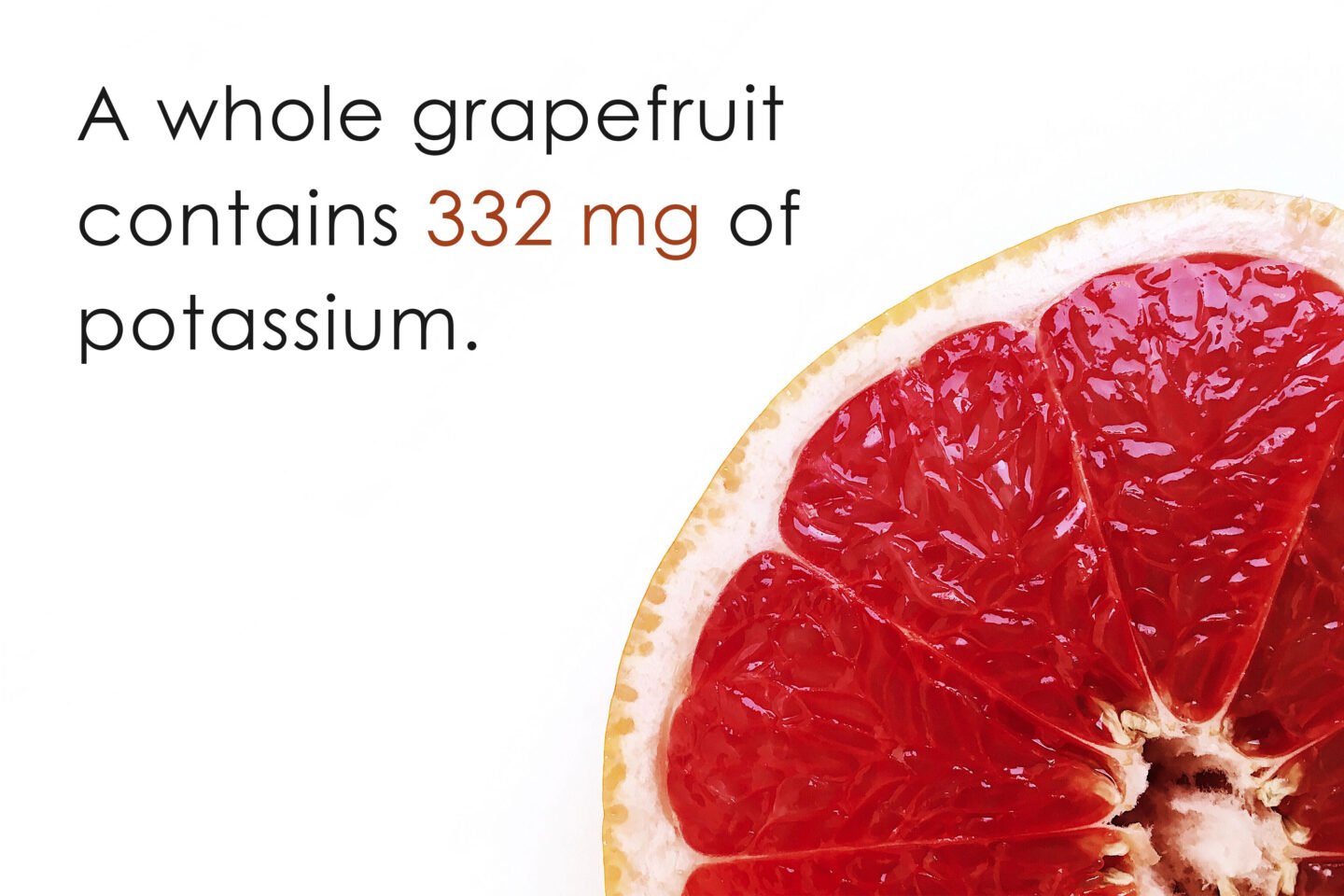
A whole grapefruit contains 332 mg of potassium and, like most citrus fruits, is high in vitamin C.
Grapefruit also contains vitamin A and calcium, which contribute to bone health.
9. Sweet Cherries
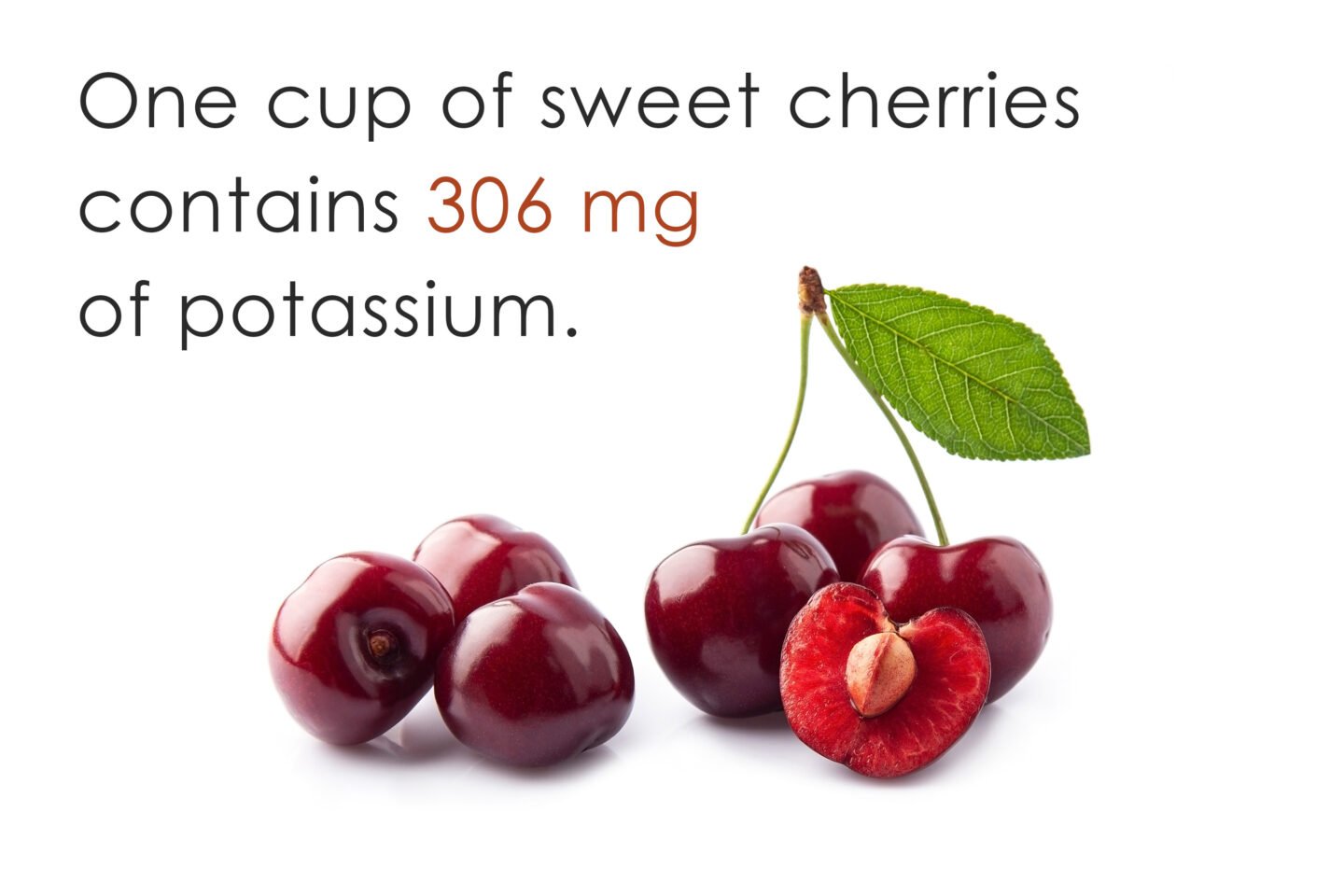
One cup of sweet cherries contains 306 mg of potassium and is high in iron and vitamin K, essential for red blood cell formation and blood clotting.
They also contain vitamin C, which aids iron absorption, and are low in calories, making them a great addition to any diet.
10. Kiwi
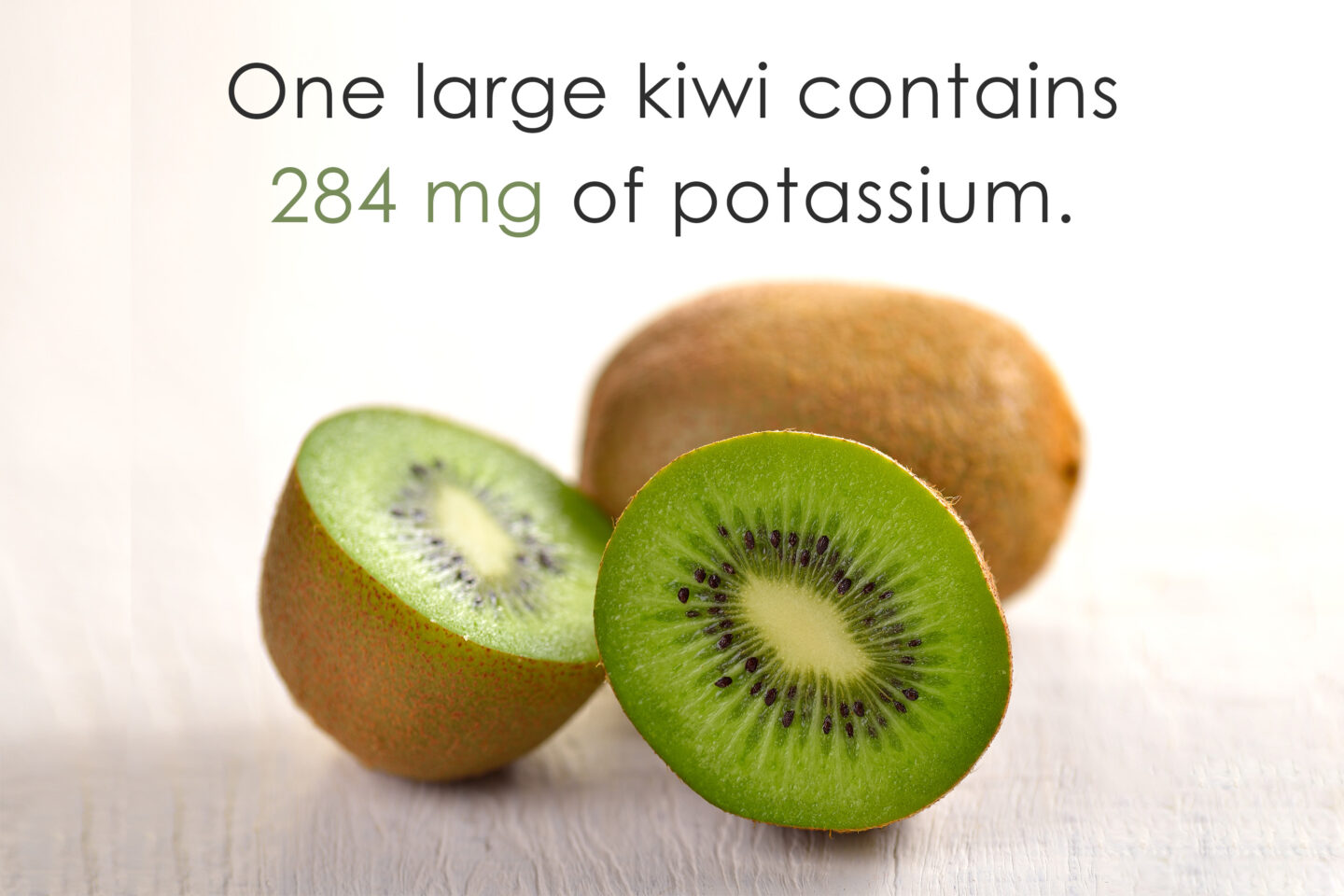
One large kiwi is low in calories but contains 284 mg of potassium.
Eating kiwis may contribute to digestive health, as they contain plant compounds that feed good gut bacteria and may prevent constipation better than some over-the-counter medication.
11. Apricots
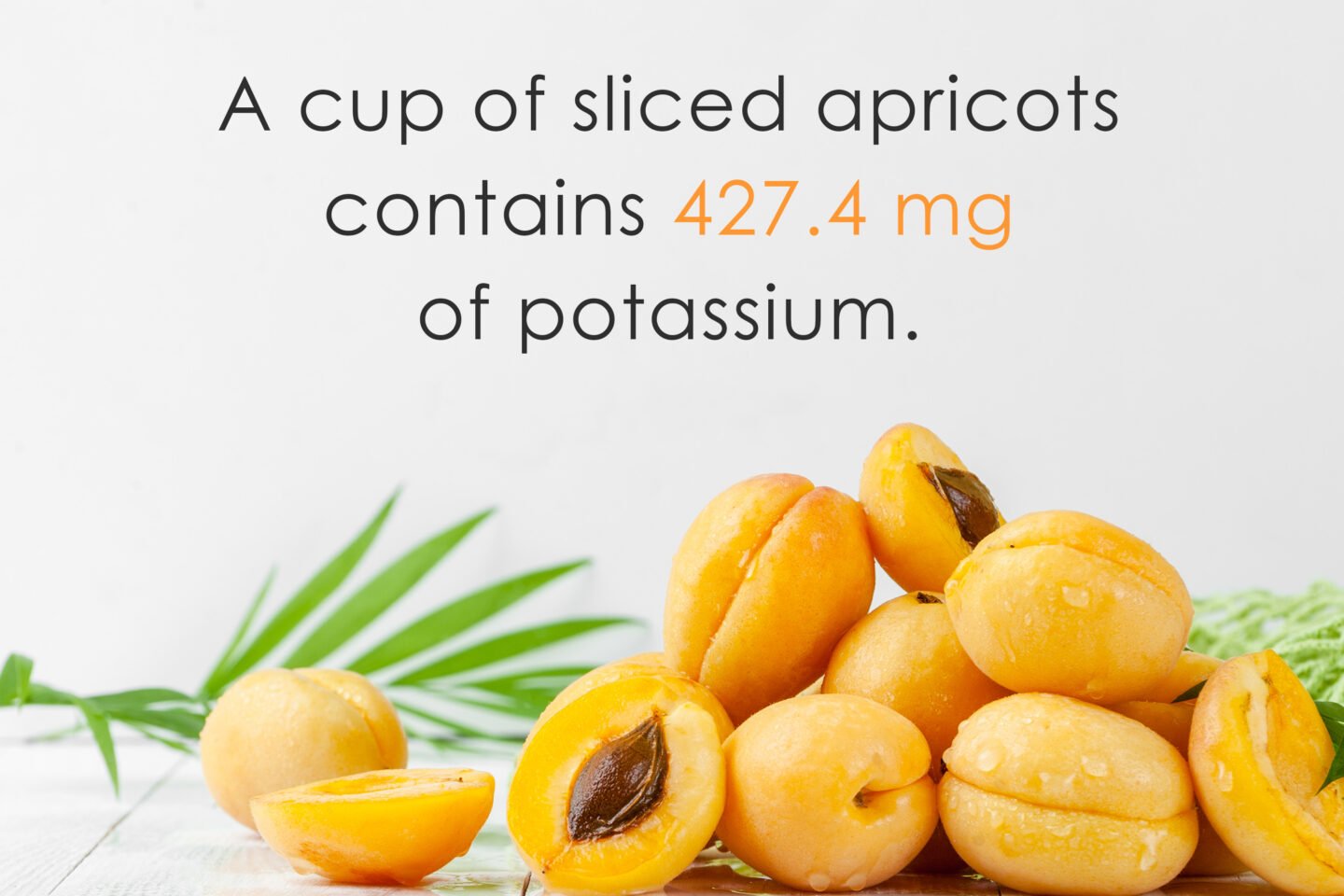
A cup of sliced apricots contains 427.4 mg of potassium and a good amount of vitamin A, which helps protect your eyes and lowers the risk of some cancers.
12. Mangos
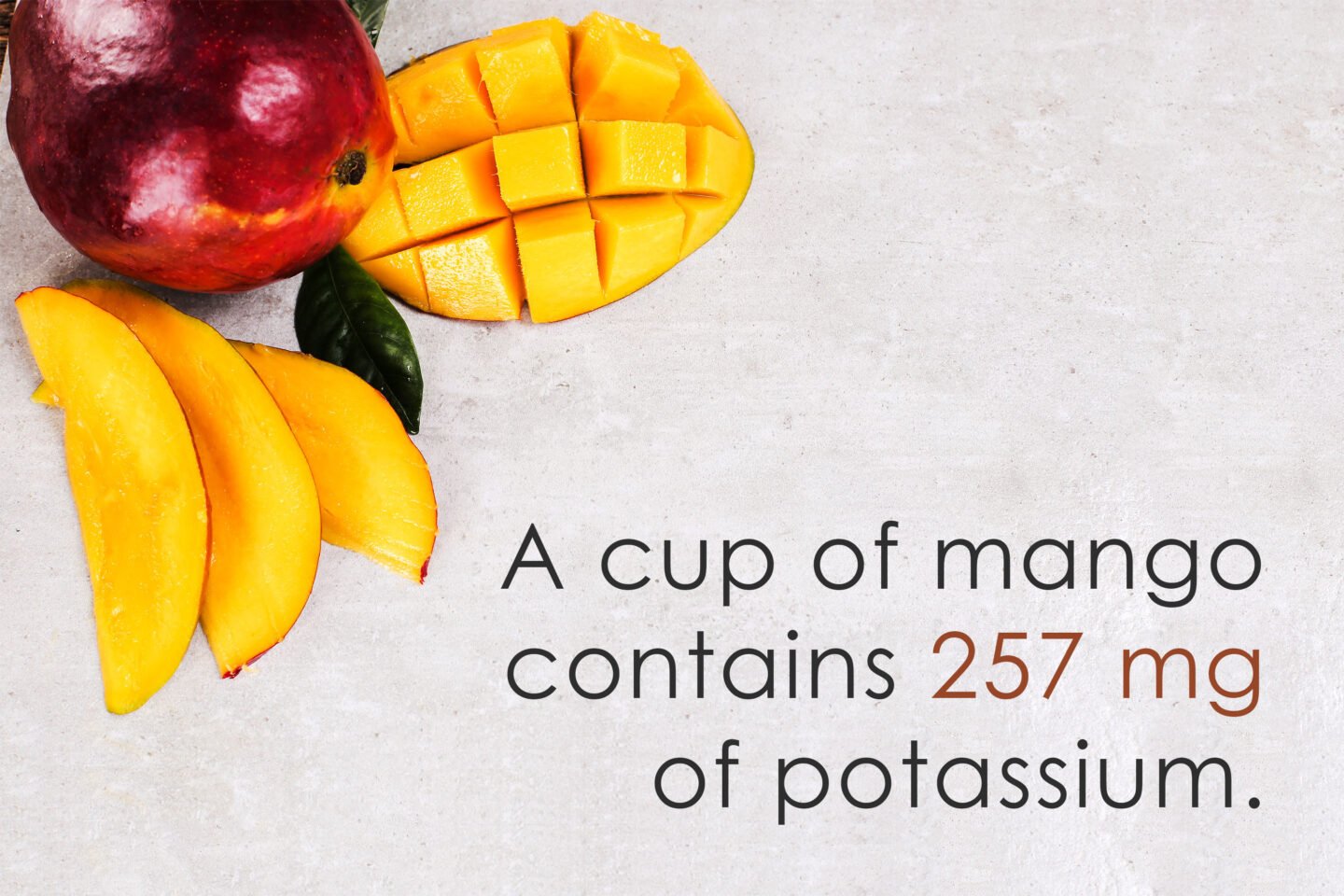
A cup of mango contains 257 mg of potassium, and mangos fight inflammation, preventing chronic conditions.
They also contain fiber, which soaks up excess stomach acid, feeds good gut bacteria, and supports digestive health.
13. Oranges
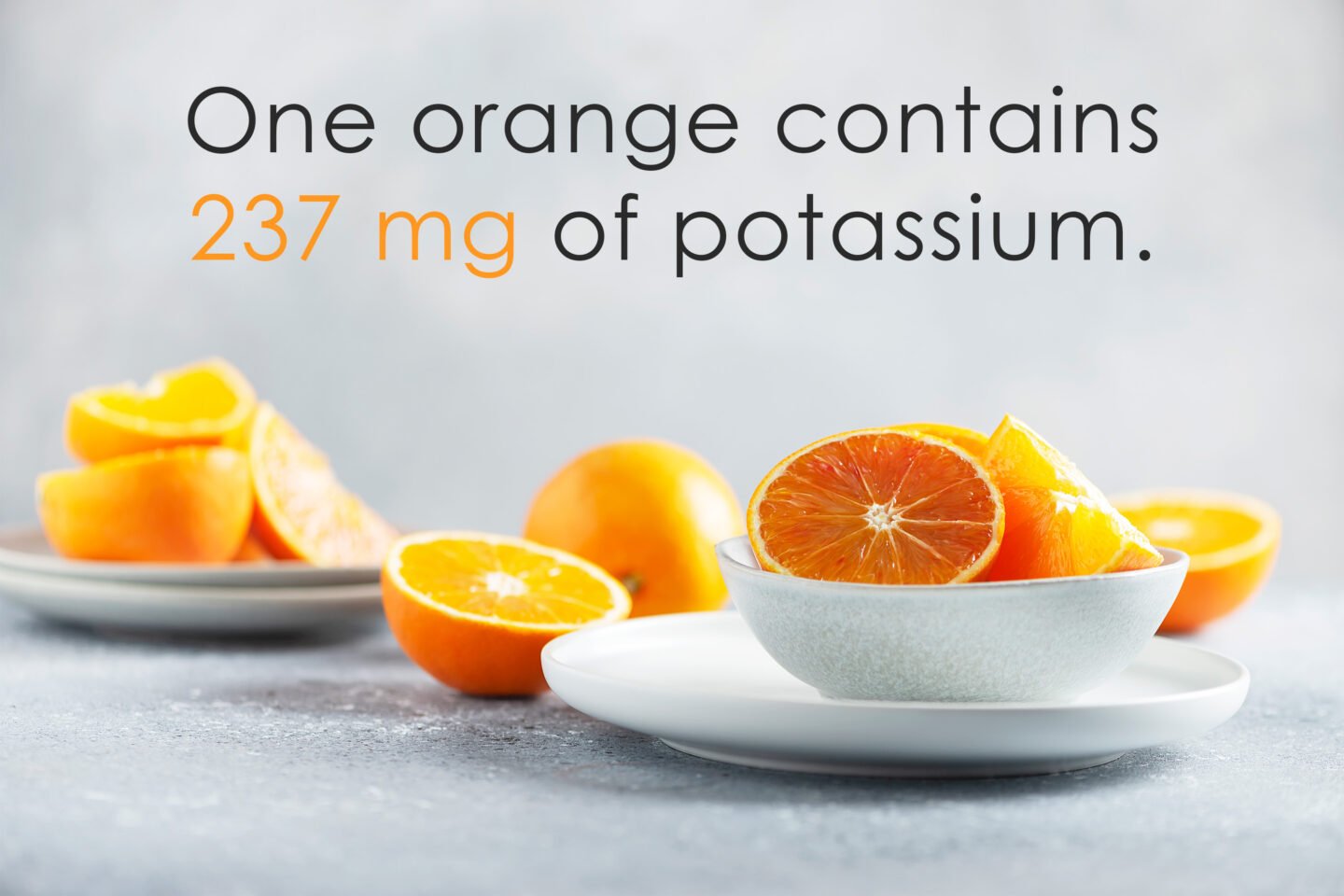
One orange contains 237 mg of potassium and is especially rich in vitamin C, which aids iron absorption and supports skin health.
Oranges and orange juice are very popular, and both are excellent sources of potassium.
14. Guava
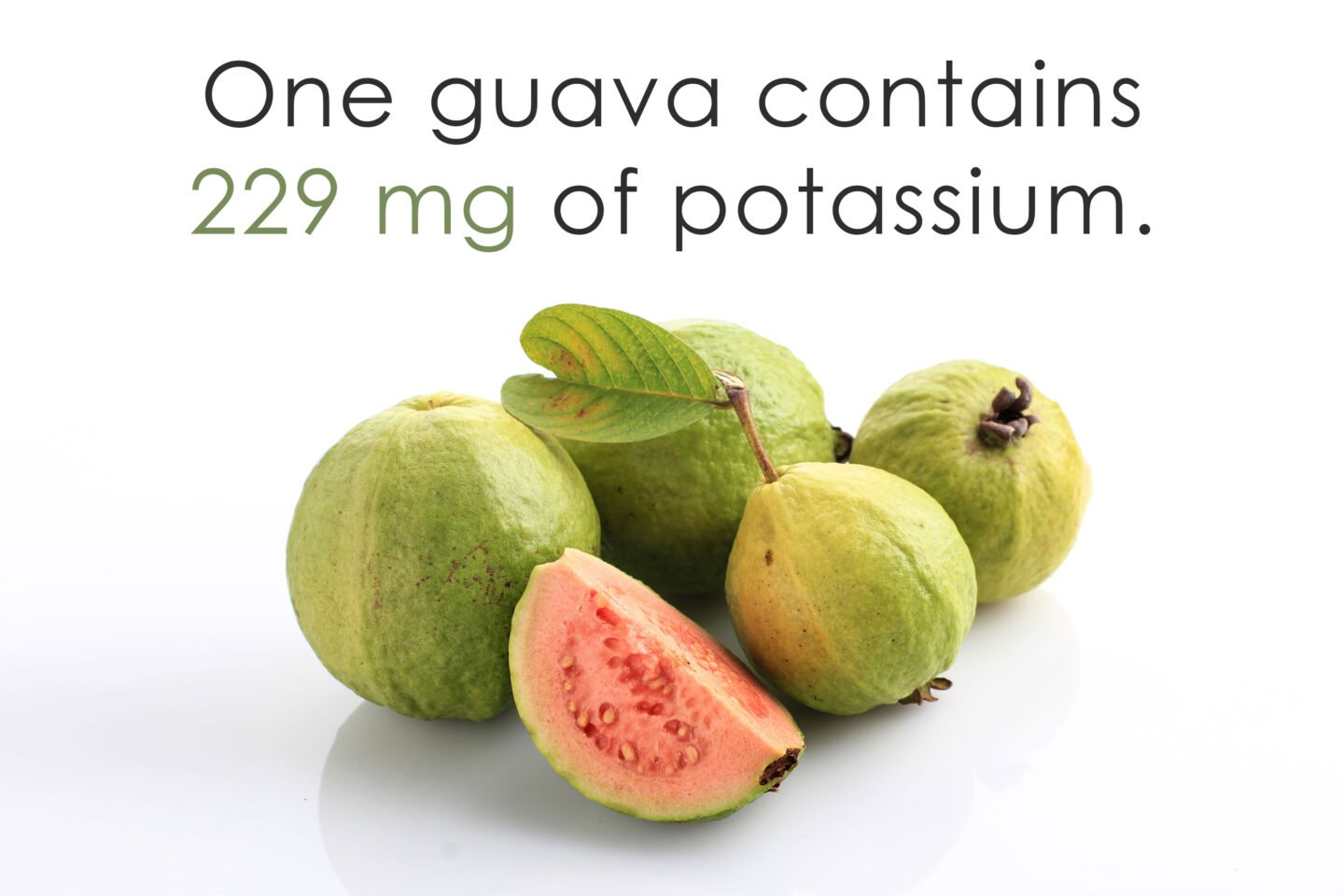
One guava contains 229 mg of potassium and a lot of vitamin C, keeping your skin healthy and boosting your immune system.
Eating guava may also improve blood sugar levels and insulin resistance.
15. Raisins
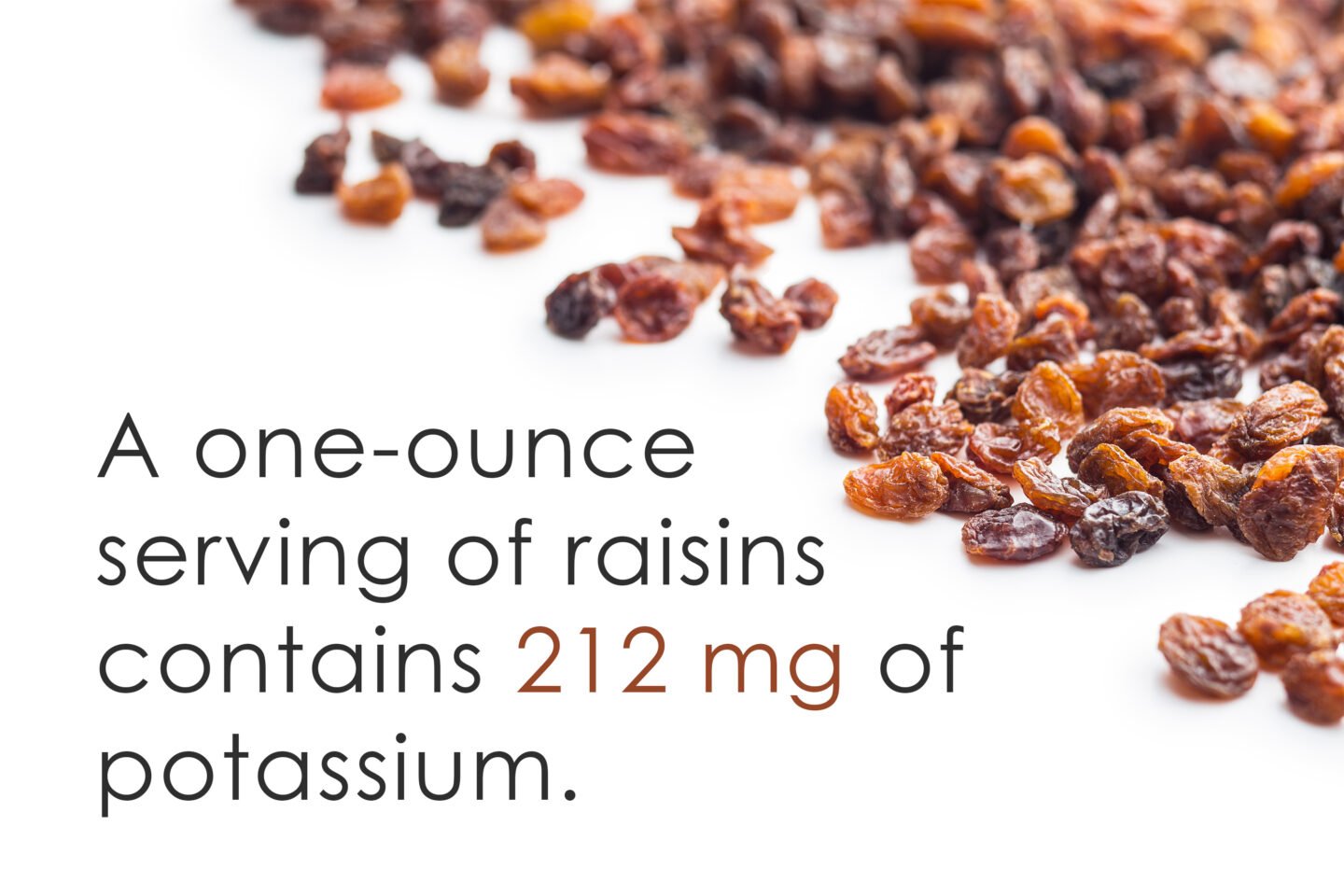
A one-ounce serving of raisins contains 212 mg of potassium.
Eating raisins may lower your blood pressure and improve your blood sugar levels.
The fiber in raisins may also lower bad cholesterol levels, contributing to heart health.
What Does Potassium Do in Your Body?
Your body doesn’t produce potassium, so getting enough from your diet is important.
Potassium is an electrolyte that conducts electrical impulses throughout your body, making it vital for nerve and muscle function.
It also offsets the harmful effects of sodium, lowering your blood pressure and stroke risk, and keeps your heart's rhythm steady.
Although too much potassium (hyperkalemia) can cause health issues, it mainly occurs in people with kidney disease, as they can't remove the excess as well as healthy people.
Don't know which foods are high in potassium? Read our article, 15 Best Food Sources of Potassium. We also have a guide to this important mineral: Potassium 101: All You Need To Know About Potassium.
Source:
